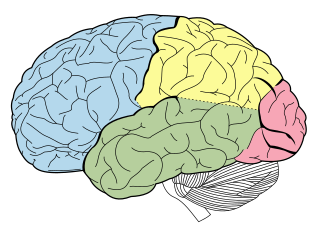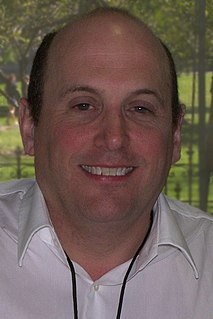A Quote by Edward Boyden
I think the definition will change as we learn more, but my working definition of solving the brain is: one, we can model, maybe in a computer, the processes that generate things like thoughts and feelings, and two, we can understand how to cure brain disorders, like Alzheimer's and epilepsy. Those are my two driving goals. One is more human-condition oriented, and one more clinical.
Related Quotes
But if the brain is not like a computer, then what is it like? What kind of model can we form in regard to its functioning? I believe there's only one answer to that question, and perhaps it will disturb you: there is no model of the brain, nor will there ever be. That's because the brain, as the constructor of all models, transcends all models. The brain's uniqueness stems from the fact that nowhere in the known universe is there anything even remotely resembling it.
Now, we used to think the brain was like a computer. But now, we realize that's not true. There's no programming of the brain. There's no Windows. And we think the brain is more like a large corporation. Because think of the unconscious mind. In a corporation, you have subdivisions which operate independently of the main office.
Because we do not understand the brain very well we are constantly tempted to use the latest technology as a model for trying to understand it. In my childhood we were always assured that the brain was a telephone switchboard...Sherrington, the great British neuroscientist, thought the brain worked like a telegraph system. Freud often compared the brain to hydraulic and electromagnetic systems. Leibniz compared it to a mill...At present, obviously, the metaphor is the digital computer.
This is the hallmark of a robust biological system: political parties can perish in a tragic accident and the society will still run, sometimes with little more than a hiccup to the system. It may be that for every strange clinical case in which brain damage leads to a bizarre change in behavior or perception, there are hundreds of cases in which parts of the brain are damaged with no detectable clinical sign.
I wanted to say something to cheer her up. I had a feeling that cheering her up might be a lot of work. I was thinking of how sometimes, trying to say the right thing to people, it’s like some kind of brain surgery, and you have to tweak exactly the right part of the lobe. Except with talking, it’s more like brain surgery with old, rusted skewers and things, maybe like those things you use to eat lobster, but brown. And you have to get exactly the right place, and you’re touching around in the brain but the patient, she keeps jumping and saying, “Ow.
I have not been diagnosed with epilepsy. I did have an MRI of the brain, and they found no abnormalities in my brain. Now, there are people with epilepsy who have completely normal MRI's, too. I just think also, you know, epileptic seizures can be triggered by emotional stress, by all kinds of things, lights.
I had a lot of nerves for a long time about career-oriented things, and I've slowly sort of let myself relax into it a bit. Part of me thinks that's maybe the effect of being on two hit shows. I like to think that maybe it's more: You do the things you do, and you do the best you can, and that's all you can hope for, and don't worry too much if it's not it.
Knowledge and productivity are like compound interest. The more you know, the more you learn; the more you learn, the more you can do; the more you can do, the more the opportunity. I don`t want to give you a rate, but it is a very high rate. Given two people with exactly the same ability, the one person who manages day in and day out to get in one more hour of thinking will be tremendously more productive over a lifetime.
































